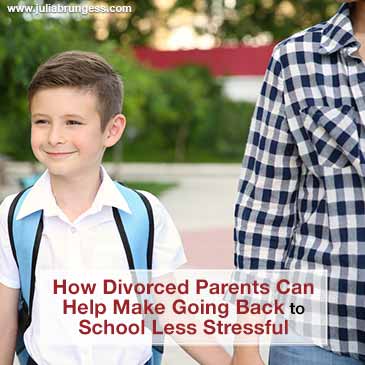Navigating Joint Custody During the School Year
Divorce is never easy, and managing joint custody during the school year adds another layer of complexity to an already challenging situation. As a law office with extensive experience in family law, we at Kezirian Law, understand the difficulties divorced parents face in maintaining effective custody arrangements to ensure their children’s educational stability and well-being. This blog provides practical tips and strategies for managing joint custody during the school year, focusing on custody agreement adaptation, school activities coordination, and maintaining academic success through effective parental cooperation. Custody Agreement Adaptation A well-structured custody agreement is foundational to a smooth co-parenting experience during the school year. However, academic schedules and extracurricular activities can create unforeseen challenges, necessitating periodic adaptations to custody arrangements. 1. Review and Update Custody Agreements: Regularly review your custody agreement to ensure it aligns with your children’s evolving academic needs and extracurricular schedules. Be open to making necessary adjustments that prioritize your children’s educational stability. 2. Flexible Scheduling: Incorporate flexibility into your custody arrangement. Understand that school events, parent-teacher conferences, and unexpected school closures may require quick adjustments. Build in mechanisms for these contingencies to avoid conflicts. 3. Shared Calendar Tools: Utilize shared digital calendars to keep track of school schedules, extracurricular activities, and other important dates. This fosters transparency and helps both parents stay informed, reducing misunderstandings and conflicts. School Activities Coordination Coordinating school activities between two households requires effective communication and collaboration. By working together, you can ensure that your child remains actively engaged in their school life without feeling the strain of parental discord. Communicate Regularly: Establish a consistent communication routine to discuss your child’s school activities, academic progress, and any concerns that arise. Whether it’s through weekly check-ins or a shared online journal, keeping each other informed is vital. Attend Events Together: When possible, attend school events, parent-teacher conferences, and extracurricular activities together. This demonstrates a unified front and reinforces to your child that both parents are involved and invested in their well-being. Delegate Responsibilities: Divide responsibilities to avoid overlap and ensure that all aspects of your child’s educational experience are covered. For example, one parent could handle the logistics of transportation to and from school, while the other oversees school supply purchases and homework routines. Ensuring Educational Stability Stability and consistency are crucial for any child, especially during the school year. Strive to create a seamless experience between both households to support your child’s academic success and overall well-being. Consistent Routines: Maintain similar routines in both households to provide consistency for your child. A predictable schedule for homework, meals, and bedtime can help your child thrive academically and emotionally. Coordinate Academic Support: Work together to support your child’s academic needs. This could involve shared tutoring responsibilities, helping with homework, or ensuring that both homes have necessary school supplies and a conducive study environment. Monitor Academic Progress: Regularly review your child’s academic progress and discuss any areas needing improvement. Stay in contact with teachers and school counselors to address concerns promptly and develop strategies to support your child’s learning. Parental Involvement Post-Divorce Divorced parents can successfully manage joint custody by prioritizing their child’s needs and fostering an environment of cooperation. Here are some tips for maintaining effective parental involvement post-divorce: 1. Positive Communication: Foster a positive communication environment free from conflict. Use respectful, clear, and constructive dialogue when discussing issues related to your child’s education and custody arrangement. 2. Unified Decision-Making: Aim to make important decisions together, ensuring that both of you are on the same page. This includes decisions about academic paths, extracurricular activities, and any special educational needs. 3. Neutral Drop-Off Zones: Establish neutral drop-off and pick-up zones, such as the child’s school, to minimize potential conflicts and provide a smooth transition for your child. Overcoming Shared Parenting Challenges Every family faces unique challenges, but with mutual respect, effective communication, and a focus on your child’s best interests, you can overcome the difficulties of shared parenting. 1. Conflict Resolution Mechanisms: Establish mechanisms for resolving conflicts amicably. This could involve setting up regular mediation sessions or seeking guidance from a family counselor to navigate disagreements constructively. 2. Focus on the Child: Always keep your child’s best interests at the forefront. Avoid putting them in the middle of disputes, and reassure them of your love and support from both parents. 3. Self-Care for Parents: Remember to take care of your own emotional and mental health. By managing stress effectively and seeking support when needed, you can be a more present and supportive parent. Managing joint custody during the school year presents its own set of challenges, but with careful planning, open communication, and a focus on your child’s well-being, you can create a supportive and stable environment for their academic success. At Kezirian Law we are committed to helping divorced parents develop effective custody arrangements that prioritize educational stability and parental involvement. If you need assistance with your custody agreement or seek advice on how to better manage joint custody during the school year, do not hesitate to reach out to our experienced legal team. Together, we can work towards a collaborative, child-centered approach that fosters your child’s growth and happiness. By adapting custody agreements, coordinating school activities, ensuring educational stability, maintaining parental involvement, and overcoming shared parenting challenges, you can successfully manage the school year, providing the best possible environment for your child’s academic and personal development.
Navigating Joint Custody During the School Year Read More »










